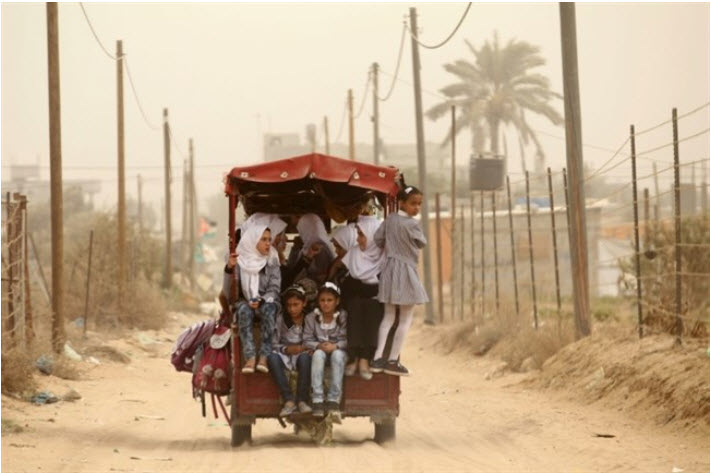The World Bank has warned of the “high risk” of a renewed political and social unrest in the Palestine-Israel conflict following the third straight year of increasing poverty in the occupied Palestinian territories, according to the Ma’an News Agency. In a report released Tuesday, September 29, the World Bank pointed to war, reduced donor aid, the suspension of revenue payments, and ongoing restrictions by Israel as having had “a severe impact on the Palestinian economy.”
“The persistence of this situation could potentially lead to political and social unrest,” the report said. “In short, the status quo is not sustainable and downside risks of further conflict and social unrest are high,” said the World Bank.
The percentage of the population living under the poverty line has reached 39 percent in Gaza and 16 percent in the West Bank. It said the “Palestinians are getting poorer on average for the third year in a row. Donor support has significantly declined in recent years,” especially for the war-ravaged Gaza Strip. Unemployment “remains high, particularly amongst Gaza’s youth where it exceeds 60 percent, and 25 percent of Palestinians currently live in poverty,” the World Bank said. The report also highlighted the stagnation of reconstruction in Gaza, which it said has seen less than 7 percent of the total construction material required enter its borders. Only a third of donor aid pledged to Gaza has been dispersed, the report said, amounting to $881 million less than was promised. “The blockade on Gaza imposed by countries neighboring the Strip needs to be lifted in a way that protects legitimate security concerns of those countries,” the World Bank said, referring to Israel and Egypt’s crippling military blockade, in place since 2008.

Palestinian school children ride a rickshaw in Khan Younis in the southern Gaza Strip on September 9, 2015. (AFP/Said Khatib/File)
The report added: “Israeli measures to let more goods leave Gaza are welcome, but more needs to be done: only six percent of what left Gaza prior to the blockade is currently being allowed out.” The report hailed the “very good progress” made by the West Bank-based Palestinian Authority in reducing its fiscal deficit. It said unemployment in the West Bank in the first half of 2015 had eased to 16 percent, down from 18 percent in the same period of last year, thanks to the growing number of Palestinians working in Israel, which has reached 112,200. “Even without a final peace deal, there is substantial upside potential in the Palestinian economy if existing agreements are implemented and restrictions lifted,” the World Bank said. It forecast 2.9 percent growth in the occupied Palestinian territory this year.
However, the report warned against complacency in the face of the “current volatile reality.” The World Bank made its warning amid renewed clashes in and around the Al-Aqsa Mosque compound, which on Monday saw at least 22 Palestinians injured.Palestinian President Mahmoud Abbas has warned that Israeli actions at the holy site could spark an intifada, or uprising. Meanwhile, the Palestinian Center for Policy and Survey Research recently found in a survey that 57 percent of Palestinians support a return to an armed intifada in the absence of peace negotiations, up from 49 percent three months ago. The poll organizers said the figure was similar to numbers seen ahead of the Second Intifada that began in 2000.
Economic monitoring report to the ad hoc liaison committee (Vol. 2) : main report (English)


